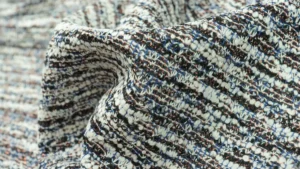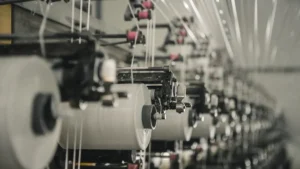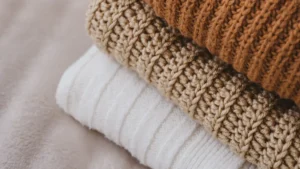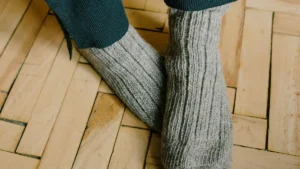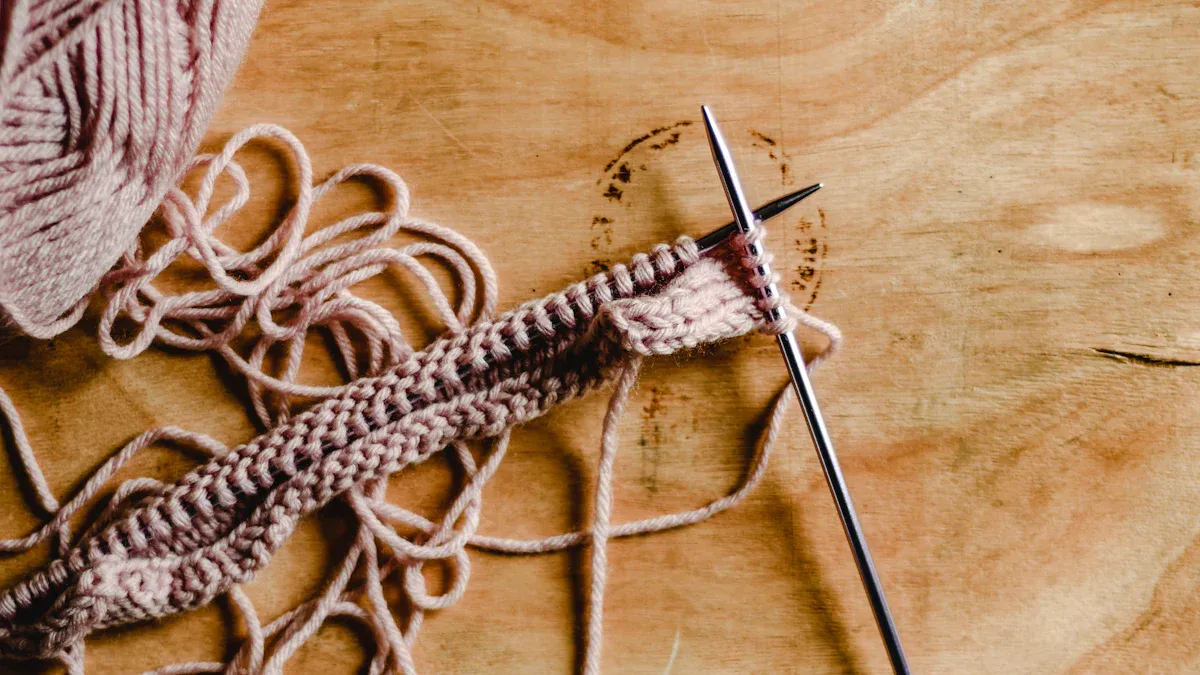
Linen stitch knitting gives your fabric a dense, woven look that feels both sturdy and elegant. You get a texture that stands out, making your projects practical and eye-catching. Whether you want to make a colorful scarf or a sturdy tote, you’ll find linen stitch easy to pick up and fun to use. Just look at the variety of items people love to create:
Item Type | Description |
|---|---|
Dish Cloths | Dense and durable, perfect for everyday use. |
Bags | Sturdy, woven-like fabric for totes and pouches. |
Scarves | Colorful, with a beautiful woven appearance. |
Cowls | Warm and textured, ideal for cozy accessories. |
Coasters | Small, practical, and great for using up scrap yarn. |
You can start with simple projects or dive into something bold. Grab your yarn and see what linen stitch can do for your knitting!
Key Takeaways
Linen stitch makes a strong fabric. It looks neat and keeps its shape. This stitch is great for many projects.
Linen stitch is easy to learn. You only need to know a two-row pattern. It is good for beginners. It is also relaxing to knit.
Picking the right yarn and needles is important. Cotton blends and bamboo needles work well. They help your project look and feel nice.
Linen stitch is good for many things. You can make dishcloths, scarves, bags, and coasters. Each item has its own special use.
Practice your tension, swatch, and block your work. This will make your project look better. It will also last longer.
Linen Stitch Knitting Basics
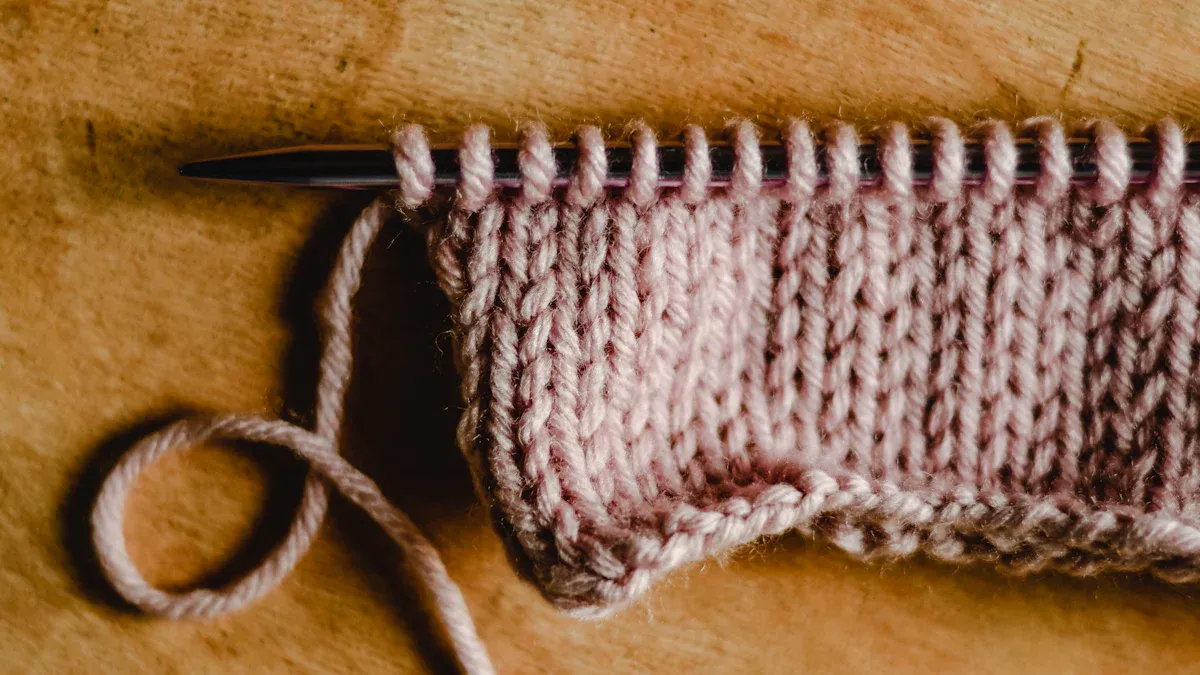
Texture and Structure
When you try linen stitch, you’ll notice the fabric feels crisp and firm. It stands out from other stitches because it looks woven, almost like a basket. Here’s what makes linen stitch knitting unique:
The fabric has sharp, sculptural stitch outlines.
It feels smooth and strong, thanks to the way the stitches lock together.
Linen stitch doesn’t stretch or bounce back like wool. Instead, it keeps its shape and gives your project a cool, absorbent feel.
Over time, your finished piece will get softer but still stay durable.
If you want a project that holds its shape and shows off clean lines, linen stitch is a great choice.
Simple 2-Row Repeat
You don’t need to memorize a long pattern to master linen stitch. The magic comes from a simple two-row repeat. You slip some stitches and knit others, which creates that signature woven look. This makes linen stitch perfect for beginners and anyone who wants a relaxing, rhythmic project. You can easily add stripes or play with color, too.
Tip: Swatch and block your sample before starting a big project. Linen stitch can stretch and change after washing, so it’s smart to check your gauge first.
Yarn and Tools
Choosing the right yarn and needles helps you get the best results with linen stitch knitting. Here’s a quick guide:
Example Yarn(s) | Suggested Needle Size (US) | |
|---|---|---|
Bulky | Malabrigo Chunky | 11 |
Slightly thinner bulky | Malabrigo Mecha, Berroco Vintage Chunky | 11 (go down a size if thinner) |
Worsted | — | 10.5 |
Sport/DK | — | 8 |
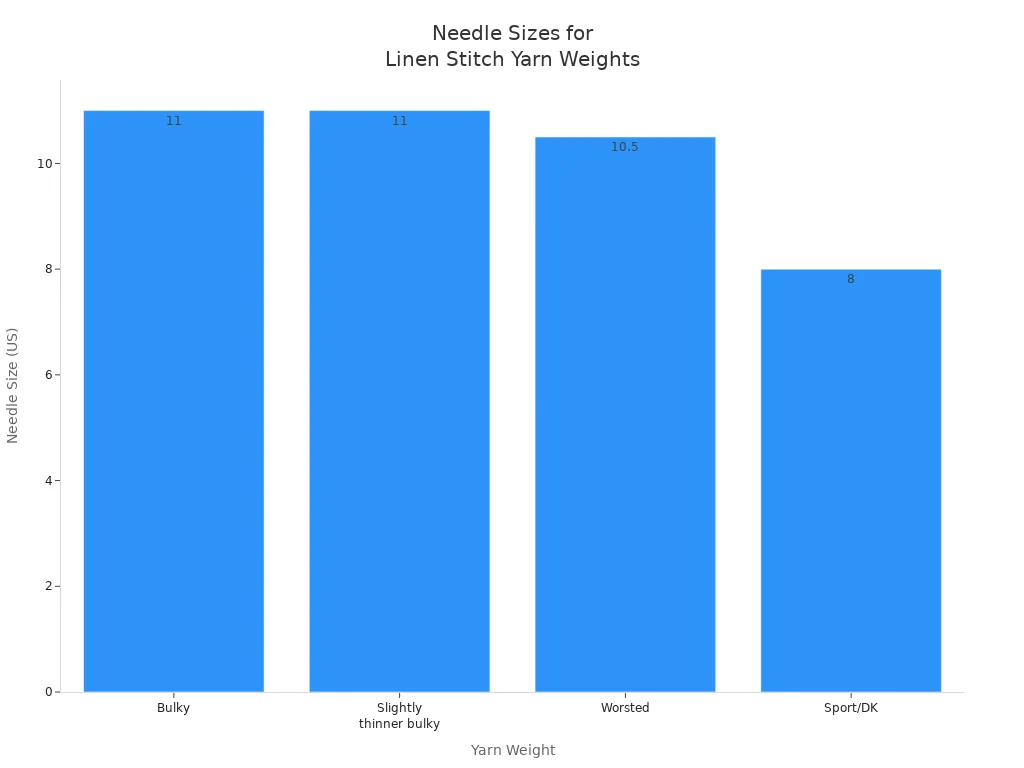
Linen yarn can feel stiff and slippery, so you might want to use bamboo or wood needles. These help keep your stitches from sliding off. Linen stitch uses less yarn than dense stitches like cables or brioche, so you can plan your yarn budget with confidence.
Linen Stitch Project Ideas
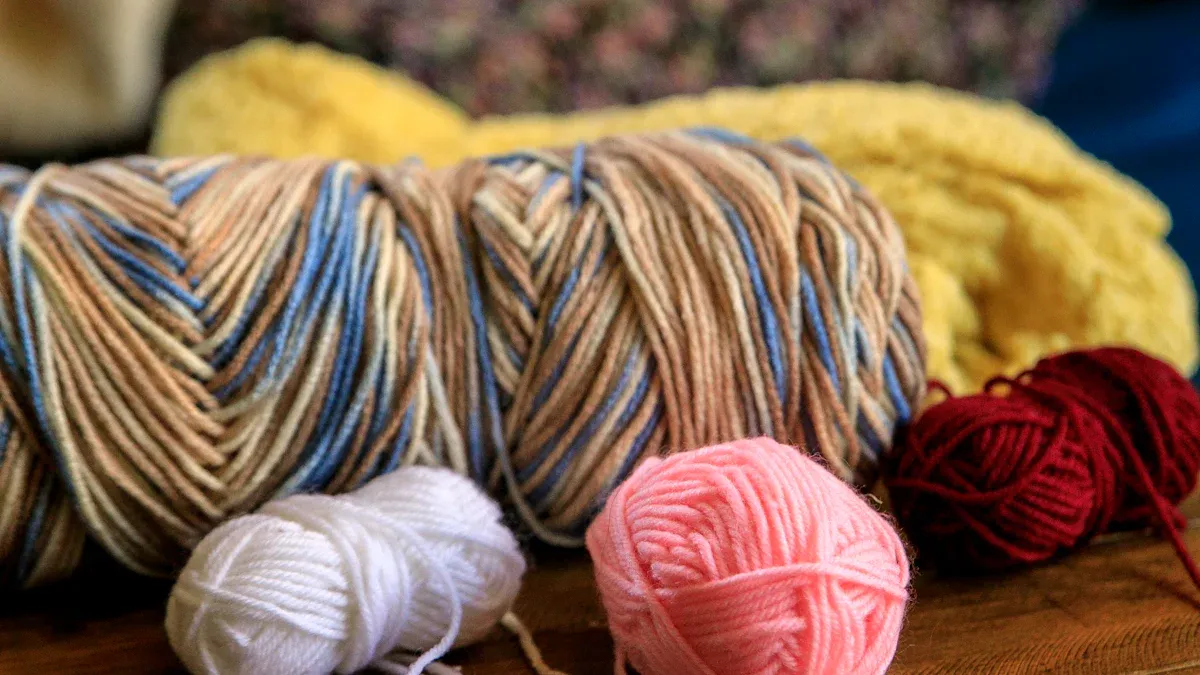
Dishcloths
Dishcloths are a fantastic way to try linen stitch knitting. You get a firm, flat fabric that resists curling, so your dishcloths stay neat at the edges. The woven texture looks beautiful and feels great in your hand. You can knit these flat or in the round, making them super versatile for any style you like.
Skill Level: Beginner
What Makes It Special: The fabric is sturdy and keeps its shape, even after many washes.
Tips for Variations: Try using bright cotton yarns or mix two colors for a checkerboard effect. Cotton or linen-cotton blends work best for absorbency and durability.
Top Benefits of Linen Stitch Dishcloths:
Firm, flat fabric that resists curling
Unique woven texture, with a pretty reverse side
Works for both flat and in-the-round knitting
Scarves
A linen stitch scarf is a classic project that lets you play with color and texture. You only need to know how to knit and slip stitches, so it’s great for knitters who want something simple but striking. The scarf grows slowly because of the dense fabric, but the result is worth it.
The pattern is accessible for beginners who know basic stitches. You knit flat, always with the right side facing, and don’t need to purl. The challenge comes from knitting long rows—sometimes over 500 stitches! This makes the project meditative but requires patience and focus to keep your tension even.
Skill Level: Beginner to Intermediate
What Makes It Special: The woven look stands out, and you can use stripes or color blocks for extra flair.
Tips for Variations: Use leftover yarn for a striped effect, or try a gradient for a modern twist.
Cowls
Cowls made with linen stitch feel smooth and look sophisticated. The fabric is thin but dense, so your cowl stays warm without being bulky. Linen stitch creates a firm, resilient fabric that holds up better than many other stitches. You can wear your cowl often, and it will keep its shape and texture.
Skill Level: Adventurous Beginner
What Makes It Special: Durable, long-lasting, and stylish—perfect for everyday wear.
Tips for Variations: Try a two-color pattern or add a button for a unique closure. Use wool blends for warmth or cotton blends for a lighter feel.
Blankets
Blankets in linen stitch look and feel amazing. The stitch gives you a dense, warm fabric that drapes nicely over your bed or couch. You can use worsted, aran, or bulky yarns for different levels of warmth and texture. Linen and cotton blends add a cool, natural touch, while wool keeps things cozy.
Skill Level: Intermediate
What Makes It Special: The blanket is sturdy, textured, and perfect for snuggling.
Tips for Variations: Make stripes, color blocks, or even a patchwork look by joining smaller squares.
Recommended Yarn Types:
Bulky yarn for extra warmth
Linen, cotton, or blends for great stitch definition and drape
Tote Bags
Tote bags really shine with linen stitch. The dense, woven fabric holds its shape and can carry books, groceries, or your knitting supplies. You get a bag that looks handmade and feels sturdy.
Skill Level: Intermediate
What Makes It Special: Strong, structured, and stylish—great for everyday use.
Tips for Variations: Add a lining for extra strength, or use a bold color for a statement piece. Try cotton or linen blends for a summer-ready tote.
Pillow Covers
Linen stitch pillow covers add a modern, textured look to your home. The fabric is dense, so your pillow keeps its shape and looks neat on the couch or bed. You can get creative with color and texture to match your decor.
Skill Level: Beginner to Intermediate
What Makes It Special: Customizable and eye-catching, with endless ways to personalize.
Tips for Variations:
Use bobble or popcorn stitches for extra texture.
Try color gradients or ombré effects for a smooth color change.
Add crochet appliqués, mix stitch patterns, or attach pom poms and tassels for fun details.
Laptop Sleeves
Protect your laptop with a linen stitch sleeve. The dense fabric cushions your device and keeps it safe from scratches. The woven look gives your sleeve a professional, handmade vibe.
Skill Level: Intermediate
What Makes It Special: Durable and practical, with a sleek, modern finish.
Tips for Variations: Add a zipper or button closure. Use a soft cotton-linen blend for a smooth feel and extra protection.
Headbands
Headbands in linen stitch are perfect for summer. The stitch lays flat and shows off crisp lines, so your headband looks neat and stylish. Choose yarns that feel cool and comfortable.
Skill Level: Beginner
What Makes It Special: Breathable, lightweight, and great for warm weather.
Tips for Variations:
Use linen, linen-cotton, or bamboo blends for softness and breathability.
Try a two-color pattern for extra pop.
Wool blend sock yarns also work well for a stretchy, durable headband.
Best Yarn Blends for Summer Headbands:
Linen and linen-cotton blends
Bamboo or bamboo-cotton blends
DK weight blends with wool, cotton, linen, and silk for softness and sheen
Placemats
Placemats made with linen stitch add a handcrafted touch to your table. The fabric is dense and flexible, so your placemats lay flat and look great with any dishes. The woven texture gives them a sophisticated, artisanal feel that stands out in home decor.
Skill Level: Beginner to Intermediate
What Makes It Special: Durable, stylish, and easy to clean.
Tips for Variations: Use bold colors to match your kitchen, or try a set with different shades for each place setting.
Coasters
Coasters are a quick and practical linen stitch project. The dense fabric soaks up moisture and protects your table from heat and spills. You can use up leftover yarn and make a set in no time.
Yarn Type | Durability | Absorbency | Notes |
|---|---|---|---|
Cotton (Worsted #4) | High | High | Holds shape, easy to clean |
Organic Cotton | High | High | Eco-friendly, soft |
Hemp | Very High | Moderate | Rustic texture, softens with washing |
Linen-Cotton Blends | High | High | Luxurious feel, great absorbency |
Bamboo | Moderate | Very High | Soft, may need tighter stitches for firmness |
Acrylic | Low | Low | Not absorbent, can warp with heat |
Wool | Moderate | Low | Shrinks easily, less absorbent |
Skill Level: Beginner
What Makes It Special: Fast, functional, and perfect for gifts or using up scraps.
Tips for Variations: Use tight stitches and a smaller hook or needle for a firm, flat coaster. Double up your yarn for extra thickness. Test your yarn’s absorbency before making a full set.
Knitting Tips
Yarn Choice
Picking the right yarn makes a big difference in your linen stitch projects. Here are some things you should look for:
Texture matters. Softer linen or linen-cotton blends feel nice against your skin, so they work well for summer tops and scarves.
Match the yarn weight to your project. Thinner yarns make light, airy items. Thicker yarns give you sturdy bags or jackets.
Durability counts. Pure linen is strong but can feel stiff at first. Blends with cotton or bamboo add softness and flexibility.
Think about the environment. Pure linen is eco-friendly and biodegradable.
Watch out for shrinkage. Linen can shrink after washing. Pre-wash your yarn or use blends to help keep your project the right size.
Prepare your yarn. Pre-washing softens it and helps you avoid surprises later.
Tip: Linen stitch uses more yarn than you might expect. Always buy extra so you don’t run out before you finish.
Managing Tension
Keeping your stitches even helps your project look neat. Linen stitch can show off every little change in tension, so practice helps a lot.
If your stitches look tight or your fabric puckers, try using a bigger needle.
If your stitches are loose or uneven, switch to a smaller needle.
Relax your grip on the yarn and take breaks to avoid hand strain.
Swatch before you start. This helps you see how your yarn and needles work together.
You can also slip the last stitch of each row to get smooth, tidy edges. Adding a garter stitch border keeps things looking sharp.
Color Play
Linen stitch makes colorwork easy and fun. The woven look really pops when you use two or more colors.
Change colors at the start of every odd-numbered row for bold stripes.
Slip stitches with the yarn in front or back to highlight color contrasts.
Try mixing leftover yarns for a unique, patchwork effect.
Note: Using two colors not only looks great but also helps you keep track of your pattern.
Finishing Touches
Finishing steps make your project look polished and professional. Blocking is especially important for linen stitch.
Wet blocking smooths out stitches and helps your project keep its shape.
Soak your finished piece in cool water, gently squeeze out extra water, then lay it flat to dry.
Pin your project to the right size and shape while it dries. This helps open up the stitch pattern and evens out the texture.
Taking time with these last steps turns your knitting into something you’ll be proud to use or give as a gift.
Linen Stitch Resources
Patterns
You can find so many free linen stitch knitting patterns online. These patterns cover everything from scarves to baskets. Here are some of the most popular ones:
Pattern Name | Description | Project Type | Link |
|---|---|---|---|
Reversible cowl, super bulky yarn, easy to knit | Cowl | ||
Earflap hat with linen stitch band | Hat | ||
Liberty Wool Linen Stitch Scarf | Two-color scarf, bottom-up, easy for beginners | Scarf | |
Simple Linen Stitch Stripes Bag | Tote bag with i-cord edging and straps | Bag | |
Linen Stitch Coasters | Small coasters, great for scrap yarn | Coasters |
You can try a new knitting pattern for each project idea in this blog. Each one gives you a chance to practice linen stitch and make something useful.
Tutorials
Learning a new stitch feels easier when you watch someone else do it. You can find step-by-step video tutorials for linen stitch on YouTube and Creativebug. These videos show you how to start, keep your edges neat, and finish your project.
Tip: Pause the video and practice each step. You will learn faster and remember the stitch better.
Community
You are not alone in your knitting journey. Many knitters love to share their linen stitch projects and tips. You can join forums and groups to ask questions, get advice, or just show off your latest creation.
Ravelry Linen Stitch Projects: Ravelry Linen Stitch Search
Reddit r/knitting: Reddit Knitting Community
Facebook Groups: Search for “Linen Stitch Knitting” to find active groups.
Share your photos, ask for help, or swap ideas. You might inspire someone else to try a new knitting pattern!
Linen stitch gives you so many ways to get creative. You can make sturdy bags, soft scarves, or colorful coasters. Some knitters say the stitch feels slow or tricky at first, but others love the neat look and steady rhythm. If you get stuck, you are not alone! Many beginners ask about tension, pattern clarity, and blocking. Try a small project, play with color, and see what you like best. 😊 Have you tried linen stitch? Share your tips or questions in the comments below!
FAQ
How do I keep my linen stitch edges neat?
You can slip the first stitch of every row. This trick gives you a smooth edge. Adding a garter stitch border also helps your project look tidy.
Why does linen stitch use so much yarn?
Linen stitch creates a dense, woven fabric. You use more yarn because the stitches overlap and pack tightly together. Always buy extra yarn before you start.
Can I use more than one color in linen stitch?
Absolutely! Linen stitch looks amazing with stripes or color blocks. Try changing colors every two rows. You will see a beautiful, woven effect.
My linen stitch feels stiff. Will it soften?
Yes, it will! Wash and block your finished project. The fabric relaxes and becomes softer over time. Linen and cotton blends get even better with each wash.



